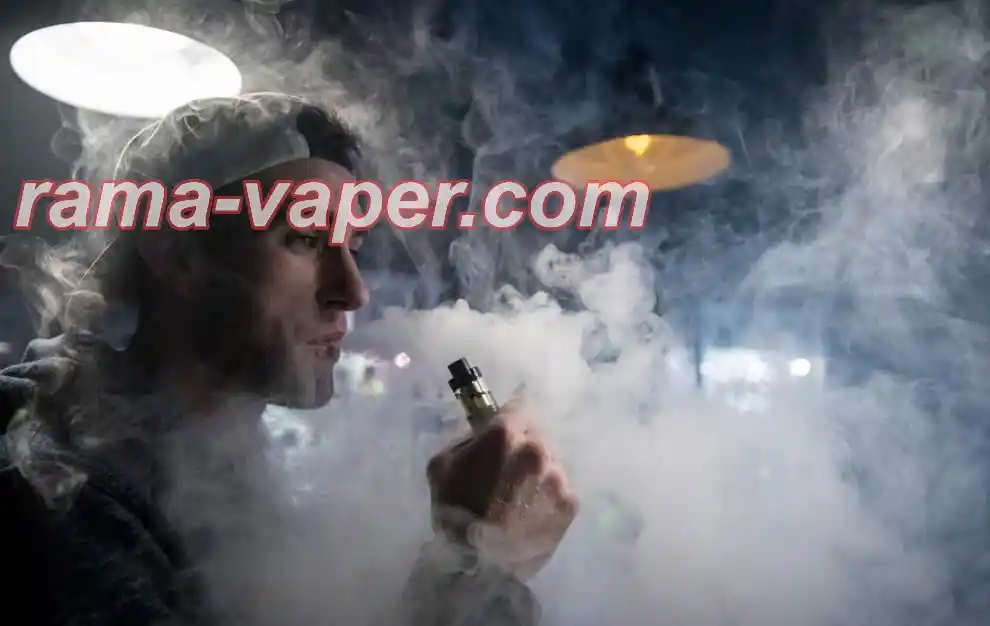Vietnam Proposes Hefty Fines for Vaping: The Battle Against Vapes and Heat-Not-Burn Products Intensifies
Vietnam Proposes Hefty Fines for Vaping: The Battle Against Vapes and Heat-Not-Burn Products Intensifies
Vietnam, a country known for its rapid modernization and increasingly strict regulations, has recently made headlines with a new proposal to crack down on the use of vapes and heat-not-burn tobacco products. In a bid to curb the growing health concerns, the Vietnamese Ministry of Health has suggested imposing fines ranging from 1 million to 2 million Vietnamese Dong (roughly $40-$80) on individuals caught using vapes. A repeat offense could lead to fines being doubled, with violators’ names reported to local authorities and schools, and the confiscation and destruction of banned products.
This regulation comes on the heels of the Ministry's continued efforts to update and tighten the government’s stance on the use of these controversial products. The proposed changes are part of a larger revision to the Decree No. 117/2020, which addresses administrative penalties within the healthcare sector. The draft is currently open for public consultation, with a final decision expected by March 2025.
Vietnam Joins the Global Trend of Vape Bans
Vietnam’s crackdown on vapes is not occurring in a vacuum. As of January 2025, Vietnam has become the 43rd country globally and the 6th ASEAN nation to officially ban the sale, production, and use of vapes and heat-not-burn tobacco products. These products have been added to the country’s list of prohibited goods, and violators could face severe legal consequences.
Under the current legal framework, outlined in Decree No. 98/2020 and the country’s criminal code, individuals or organizations involved in the production, distribution, storage, or transportation of vapes and heat-not-burn products face fines ranging from 1 billion to 10 billion Vietnamese Dong (approximately $42,000 to $420,000) or prison sentences of 1 to 5 years.
However, up until now, the regulation has primarily focused on businesses and organizations involved in the vape trade, leaving the actions of individual users largely unaddressed. The Vietnamese Ministry of Health's new proposal aims to close this loophole by establishing penalties for personal use and possession of these products. As the prevalence of vape use continues to rise, particularly among young people, the government has deemed it necessary to act decisively to prevent further harm.
Rising Vape Use Among Vietnamese Youth
One of the most concerning aspects of the growing vape problem in Vietnam is the alarming rise in usage among adolescents and young adults. A 2023 study revealed that the use of vapes among girls aged 11 to 18 in 11 provinces had reached 4.3%, a significant increase from previous years. The trend is even more concerning among boys and younger teenagers, with the proportion of 13 to 15-year-olds using vapes more than doubling from 3.5% in 2022 to 8% in 2023.
This rise in vaping among young people is not unique to Vietnam but is part of a broader global trend, with vapes becoming increasingly popular among adolescents as an alternative to traditional smoking. Unfortunately, many of these products are marketed in ways that appeal to younger users, often featuring colorful, attractive designs that mimic toys or other non-threatening objects.
Moreover, research has shown that vaping is far from a harmless alternative to smoking. Vapes can still lead to nicotine addiction, with potentially devastating long-term health effects. Beyond nicotine, there is the risk of exposure to harmful chemicals in e-liquids, some of which may contain toxic substances. The Vietnamese government’s push to restrict vape use is largely a response to these dangers.
The Hidden Dangers of Vapes: Poisonings and Health Risks
The health risks associated with vape use have also raised red flags. In January 2025, a 20-year-old man in Hanoi fell into a coma after using an vape that contained synthetic cannabinoids, a dangerous drug. This case highlights the growing concern that vapes are being increasingly used as a vehicle for delivering illicit substances.
In 2024 alone, Hanoi's Bai Mai Hospital’s poison control center treated around 100 vape poisoning cases. Among the vape samples tested, 13.3% were found to contain illegal drugs. This issue is compounded by reports of more than 1,200 people being hospitalized for vape-related health issues, many of them adolescents.
Additionally, the rise of vape-related health problems, including cases of respiratory distress and nicotine poisoning, has fueled concerns about the safety of these devices. Despite claims from manufacturers that vapes are less harmful than traditional cigarettes, the fact remains that they pose serious health risks, especially when misused or contaminated with other harmful substances. Looking for more vapes? rama vape near me helps you discover new options!
Vape Sales: A Growing Black Market
The Vietnamese government has also raised concerns about the rampant illegal sale of vapes, particularly through online platforms. Despite the upcoming ban on vape sales in 2025, many vendors are disguising vape products as toys or novelties to bypass regulations. These products are often brightly colored, shaped like cartoon animals, and sold at affordable prices—appealing to children and teenagers.
Some sellers have even gone so far as to create vapes disguised as keychains, teddy bears, or milk cartons, all of which are then marketed on social media platforms like YouTube and TikTok. These platforms have become hotbeds for tutorials, reviews, and even illegal sales, with some groups targeting young people, many of whom are unaware of the risks associated with vaping.
The rise in online sales is exacerbating the problem, and the Vietnamese government has vowed to take stronger action against these illicit activities. This has also led to an uptick in the smuggling of vape products into the country. In June 2024, authorities in Hai Duong province seized over 160,000 vape devices and more than 9,000 kilograms of vape accessories. Other major seizures have occurred in Ho Chi Minh City and Hanoi, indicating a growing problem with illegal vape imports.
The Importance of Regulated Alternatives
While the Vietnamese government’s focus is on cracking down on illegal vapes, there are some important points to consider for users who may be trying to quit traditional smoking. Vapes, particularly those with lower nicotine levels or nicotine-free versions, are often marketed as a safer alternative to smoking.
For those who are trying to quit, switching to a regulated, low-nicotine or nicotine-free vape could potentially reduce some of the harmful effects of smoking. However, it's essential to choose products that comply with health and safety standards. Unregulated products, especially those that are purchased from questionable sources or the black market, can be extremely dangerous, as they may contain harmful substances or be designed to mimic toys, making them especially appealing—and risky—for children.
For anyone considering vaping as an alternative to smoking, it is crucial to select regulated products from reputable manufacturers, preferably those with a lower nicotine content, to minimize the risk of addiction. Ultimately, the best course of action for anyone is to seek out professional help and support when quitting nicotine entirely.
The Road Ahead: A National and Global Effort
The Vietnamese government’s decision to propose harsher penalties for vape use represents just one piece of a larger global movement to address the risks posed by vaping. As health experts and governments around the world continue to grapple with the rise in vape use, particularly among young people, the need for stronger regulation and education has never been clearer. Want to dive deeper into vapes? rama vape app provides all the answers!
In the U.S., for example, the FDA has ramped up efforts to regulate vapes, and several states have implemented stricter regulations to curb the use of vaping products among minors. Similarly, countries in the European Union and elsewhere are taking steps to limit the availability of flavors vapes, which are often marketed directly to youth.
As for Vietnam, the new regulations and their enforcement will serve as an important test case for other nations dealing with similar issues. The government’s decision to impose hefty fines and introduce measures to combat the growing trend of vape use should be seen as part of a broader global effort to protect public health, especially that of vulnerable young populations.
In conclusion, while vapes may seem like a less harmful alternative to smoking, they come with their own set of dangers that cannot be ignored. The Vietnamese government’s tough stance on these products is a timely reminder of the need for both public education and stricter regulations to protect the health of the population, particularly the youth. As the fight against smoking and vaping continues, it is crucial for individuals to make informed decisions and consider all available options to quit smoking, with a particular focus on safe, regulated, and responsible alternatives.
